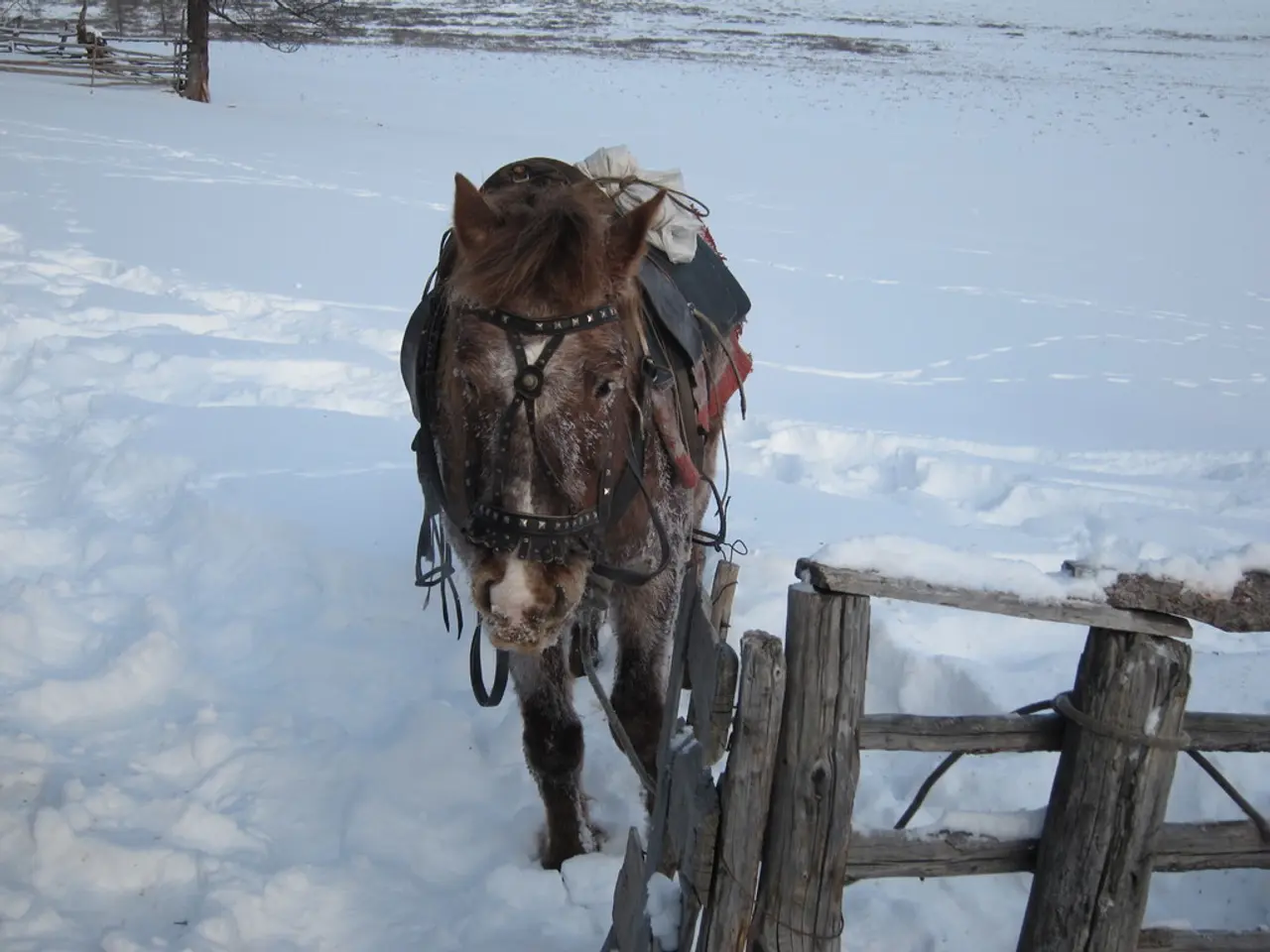Illicit donkey meat now targeted towards secondary schools, reveals Organization's statement
In a concerning development, the CEO of Farming Systems Kenya (FSK), Kenneth Wamuga, has issued a warning about the illegal trade of donkey meat. The trade, he cautions, could potentially expose students to zoonotic diseases, posing a significant threat to their health.
The trade of donkey meat is not only harmful to human health but also endangers the livelihood of thousands of families in Kenya who rely on donkeys for their livelihood. The trend of this illicit trade is a growing concern, particularly in regions such as Mwea, Embu, where donkeys are subjected to inhumane treatment and where domestic violence against women and minors is prevalent.
The illegal trade of donkey meat is a threat not only to the health of students but also to the country's donkey population. Mithigi, the Brooke East Africa Programmes manager, has identified Embu as one of the counties where donkeys are under threat due to illegal slaughter and mistreatment. The regions experiencing a peak in illegal slaughter of donkeys are mainly in the northeastern and coastal areas, where demand for donkey products such as skins is high for export purposes.
Archaic and weak laws are hindering efforts to save the donkey population. However, some progress has been made. The ban on donkey slaughterhouses, four years ago, was a major boost to the fight against the illegal trade. Since the closure of these slaughterhouses, the number of donkeys has been gradually rising after dropping sharply from 1.8 million to 1.1 million between 2016-2018.
Despite the challenges, Mithigi claims that significant progress has been made in protecting donkeys and increasing their numbers. He is working with State agencies to address the illegal slaughters of donkeys. However, the fight is not over yet. Some head teachers are reportedly working with illegal traders to supply cheap donkey meat, making it a complex issue that requires concerted efforts from all stakeholders.
Farming Systems Kenya (FSK) has identified secondary schools as new markets for illicit donkey meat. If an illegally slaughtered donkey had anthrax, it could lead to a major health crisis for the schools involved. It is crucial that actions are taken to prevent such a crisis and protect the health of Kenya's students.
In conclusion, the illegal trade of donkey meat poses a significant threat to both human health and the donkey population in Kenya. Efforts to combat this trade are ongoing, and while progress has been made, more needs to be done to ensure the safety and wellbeing of both humans and donkeys.
Read also:
- Understanding Hemorrhagic Gastroenteritis: Key Facts
- Stopping Osteoporosis Treatment: Timeline Considerations
- Expanded Community Health Involvement by CK Birla Hospitals, Jaipur, Maintained Through Consistent Outreach Programs Across Rajasthan
- Abdominal Fat Accumulation: Causes and Strategies for Reduction








